The Sweet & Spicy History of Gingerbread
There’s much more to this festive food than just those cute little houses.
Nov 27, 2022
Certain smells just evoke Christmas memories. For some, it might be a whiff of fresh pine. For others, the scent of roasting chestnuts brings back warm and fuzzies.
And for others, the distinct aroma of freshly baked gingerbread wafting through their home is the biggest reminder of holidays past.
Gingerbread, in all its many forms, has become part of our holiday traditions. But did you know its roots trace back to the Middle Ages, and it even has ties to royalty? Let's dive into the history of this holiday classic.
The origins of a holiday mainstay
The word "gingerbread" comes from the Old French "gigembras," which means "gingered food." In Middle English (which was spoken from approximately 1150 to 1450 A.D.), the term became "gyngebreed," and that evolved into "gingerbread." Today, we use "gingerbread" to describe a range of sweet treats that combine ginger with honey, treacle, or molasses.
Food historians trace the origins of gingerbread back to the ancient Egyptians, who used it for ceremonial purposes. The ancient Greeks followed suit with the first known recipe for gingerbread around 2400 B.C.
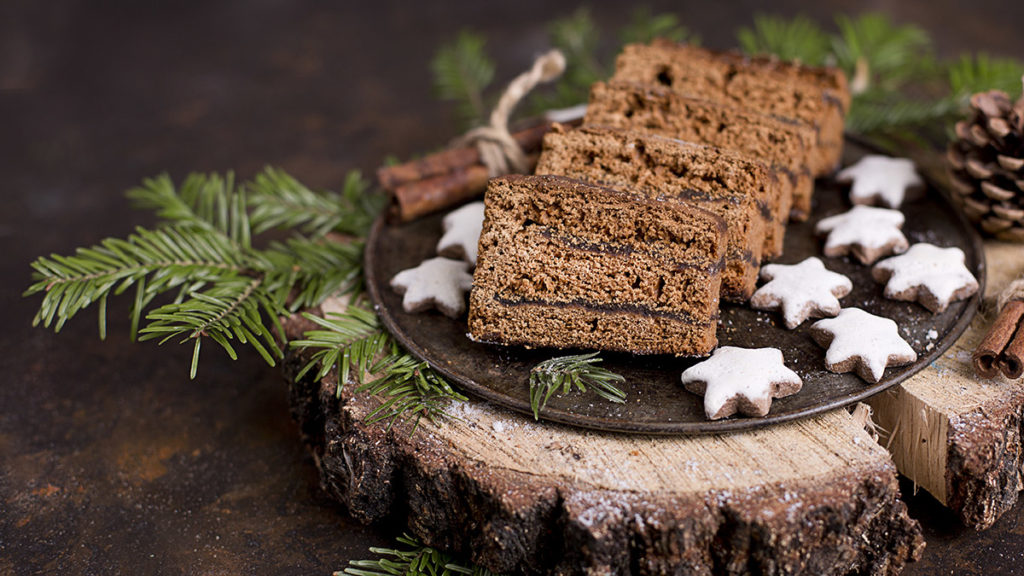
When trade with Asia during the Middle Ages made ginger (and other spices) accessible to Europeans — at least to the wealthy — the idea of gingerbread spread across the continent. An early European gingerbread recipe involved making a paste of stale breadcrumbs, ground almonds, rosewater, sugar, and ginger.
English recipes of the 16th century replaced the stale breadcrumbs with flour and added honey for a sweeter taste and lighter feel. Here's an interesting side note: During this time, cooks sometimes added fragrant ginger or crumbled gingerbread to recipes to mask the smell of preserved meat.
Gingerbread takes shape
We have monks from the Middle Ages to thank for the idea of using gingerbread for decorative designs. After creating a paste of breadcrumbs, honey, and ginger, and rolling the mixture out, the monks often carved biblical scenes or images of saints before baking it. They then used these gingerbread treats as a way to feed the hungry and offer some religious teaching at the same time.
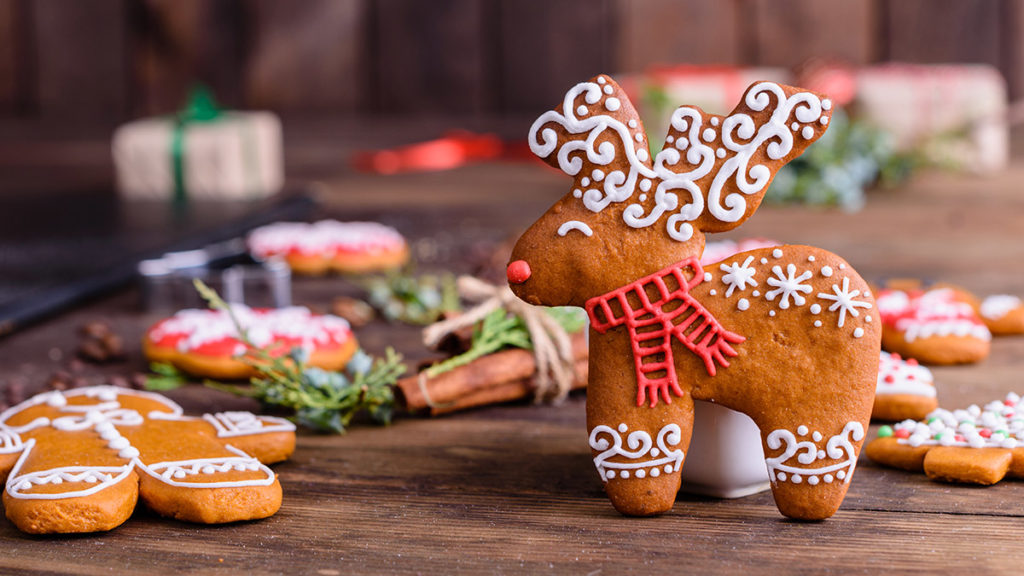
Over time, the custom caught on, and gingerbread cookies in the shape of animals, flowers, birds, or kings and queens became a common sight at medieval fairs throughout Europe. Queen Elizabeth I even ordered gingerbread cookies made to resemble the dignitaries visiting her court.
These royal cookies often featured elaborate gold leaf designs and intricate details. We still call the fancy architectural details on Victorian-era houses "gingerbread."
The stuff of fairy tales
Historians trace the holiday custom of baking and decorating of gingerbread houses to 16th century Germany. There, elaborately decorated gingerbread cookie-walled houses began showing up in bakery shop windows.

However, it was the famous Brothers Grimm fairy tale of "Hansel and Gretel" published in 1812 that really cemented the idea of the gingerbread house in the world's imagination. In the story, the two lost children discover a house in the deep forest that is built entirely of treats.
The big house
Fast forward 200 years, and those little houses had received major renovations.
In November 2013, a group of volunteers in Bryan, Texas, built the world's largest gingerbread house as a way to help raise money for a trauma center at nearby St. Joseph's Hospital.
Covering the size of a tennis court, the house required 1,800 pounds of butter, 2,925 pounds of brown sugar, 7,200 eggs, 7,200 pounds of all-purpose flour, and 1,080 ounces of ground ginger, as well as a few other ingredients. The structure had 10-foot-high walls and featured an edible exterior mounted over a wooden frame.
Gingerbread fun facts
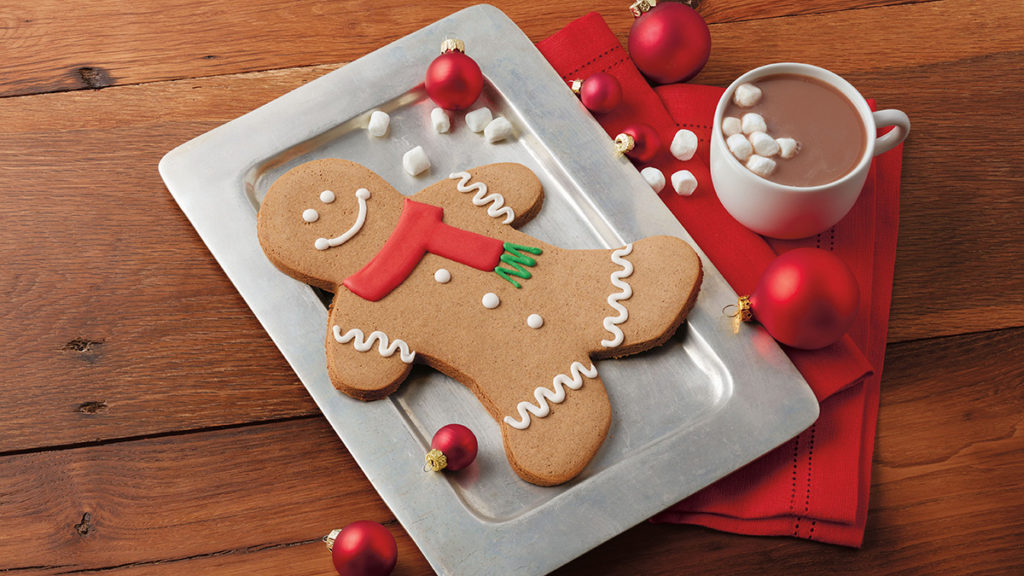
- The first known American cookbook, American Cookery by Amelia Simmons, which was published in 1796, included recipes for three different types of gingerbread, including a soft variety.
- Records show that George Washington's mother, Mary Ball Washington, served her home-baked soft gingerbread to the Marquis de Lafayette when he visited her home in Fredericksburg, Virginia.
- In 1875, "The Gingerbread Boy," the story of a boy-shaped gingerbread cookie who brags to everyone he meets that they can't catch him, first appeared in a children's periodical called St. Nicholas Magazine. Thus, were born the human-shaped gingerbread cookies we know and love today.
- According to a Swedish folk tradition, gingerbread man cookies can have magical powers. The custom says to place the cookie (which the Swedes call a "pepparkakor") in your open palm and make a wish. Then, break the cookie with your other hand. If the gingerbread breaks into three pieces, your wish will come true.
- The second Saturday in December is Gingerbread House Day in the United States. This Dec. 11, get out your DIY gingerbread house kit and get decorating!
- The record for the world's largest gingerbread man belongs to the staff of the IKEA store in Oslo, Norway. In 2009, they created a cookie that weighed 1,435 pounds, and they baked it in one piece!
3 ways to enjoy gingerbread this holiday season
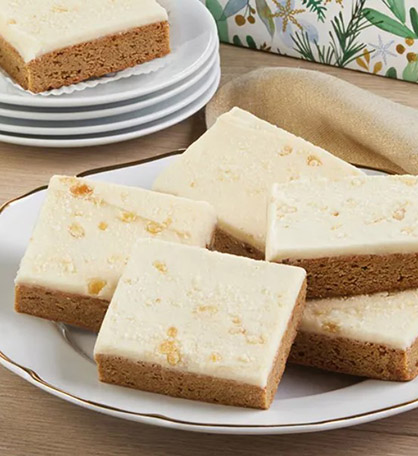
Buttercream Frosted Gingerbread Bars
For those who crave the taste of gingerbread but don't love the crunch, these delights are right up your alley. A thick layer of soft gingerbread is topped with buttercream frosting and crystallized ginger, making for an irresistible holiday treat.
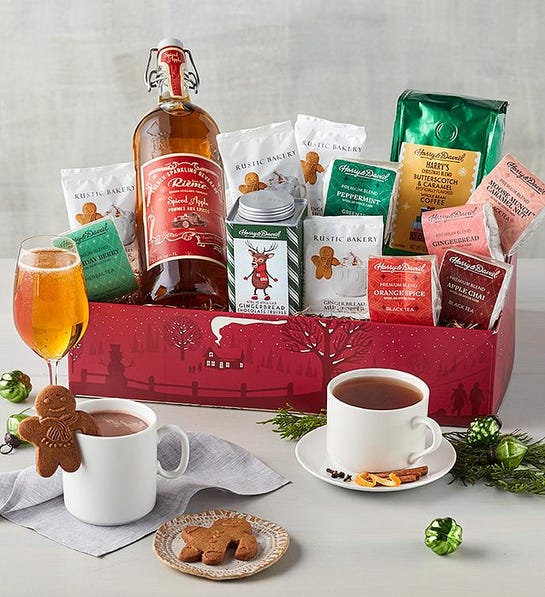
Gingerbread Chocolate Truffle Cocoa Mix
There's not much better for bringing on the warm holiday memories than a steaming cup of this cocoa, which presents a delightful flavor combination of chocolate truffles and gingerbread. The festive tin makes it gift-giving presents a delightful flavor combination of chocolate truffles and gingerbread. The festive tin makes it gift-giving perfection.

Moose Munch® Iced Gingerbread Premium Popcorn
Can't decide between popcorn or a gingerbread cookie? Now, you don't have to. Packed in a holiday canister, this caramel-covered Moose Munch® popcorn is mixed with gingerbread crumbles and delicious strings of sweet vanilla icing. It all adds up to a truly unique eating experience.






